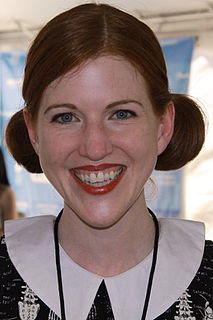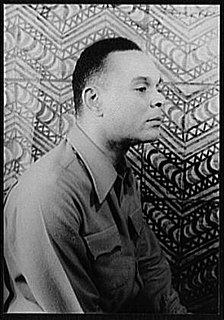A Quote by Adam Christopher
The L.A Trilogy is a series of three novels starring Ray, a robot detective, and his boss, a computer called Googol. Set in an alternative version of 1960s Los Angeles, each book will be more or less standalone but together will form an overarching story arc with 'Brisk Money' as the origin story.
Related Quotes
I like the idea of standalone novels. I always found with series of books, it's something that publishers love obviously because they can make a lot of money and they build an audience from book to book, but I don't like that as a writer. I prefer the idea of just telling a story, completing it within your book, and moving on and not forcing a child to read eight of them.
I've made the decision to adhere to three general truths when it comes to my novels: There will be a love-story element to the story, the novel will be set in eastern North Carolina, and the characters will be likeable. Then, I make each novel unique through differences in voice, perspective, age and personalities of the characters, and of course, plot.
I first heard the term "meta-novel" at a writer's conference in Tulsa, Oklahoma. The idea is that even though each book in a series stands alone, when read collectively they form one big ongoing novel about the main character. Each book represents its own arc: in book one of the series we meet the character and establish a meta-goal that will carry him through further books, in book two that meta-goal is tested, in book three - you get the picture.
A conventional ‘success’ story is one where, with each next, the protagonist has more money, more respect, and more possessions. I’d like to suggest an alternative ‘success’ story – one where, with each next, the protagonist is closer to finding that spot where he’s no longer held back by his heart, and he explodes with talent, and his character blossoms, and the gift he has to offer the world is apparent.
I decided to make myself a little less precious with my storytelling. I think you can see from the first three pieces in the book that I have a long term relationship with the short story as a form and I really love an elegantly crafted story that has several elements that come together in a way that is emotionally complex and different from when we started. That kind of crystalline, perfect, idealized thing that the short story as a genre has come to represent.
There are some books that refuse to be written. They stand their ground year after year and will not be persuaded. It isn't because the book is not there and worth being written -- it is only because the right form of the story does not present itself. There is only one right form for a story and if you fail to find that form the story will not tell itself.
Too many writers think that all you need to do is write well-but that's only part of what a good book is. Above all, a good book tells a good story. Focus on the story first. Ask yourself, 'Will other people find this story so interesting that they will tell others about it?' Remember: A bestselling book usually follows a simple rule, 'It's a wonderful story, wonderfully told'; not, 'It's a wonderfully told story.'
I don't particularly like the idea that there's an arc to the story and that therefore in this scene you have to convey this bit of information or emotion. I like more the feeling that, of course, there is a shape to the story, but that each scene should feel right, should be true at that moment, and that gradually you accumulate these moments of truth until you get enough of them together that it becomes a story that's interesting.



































